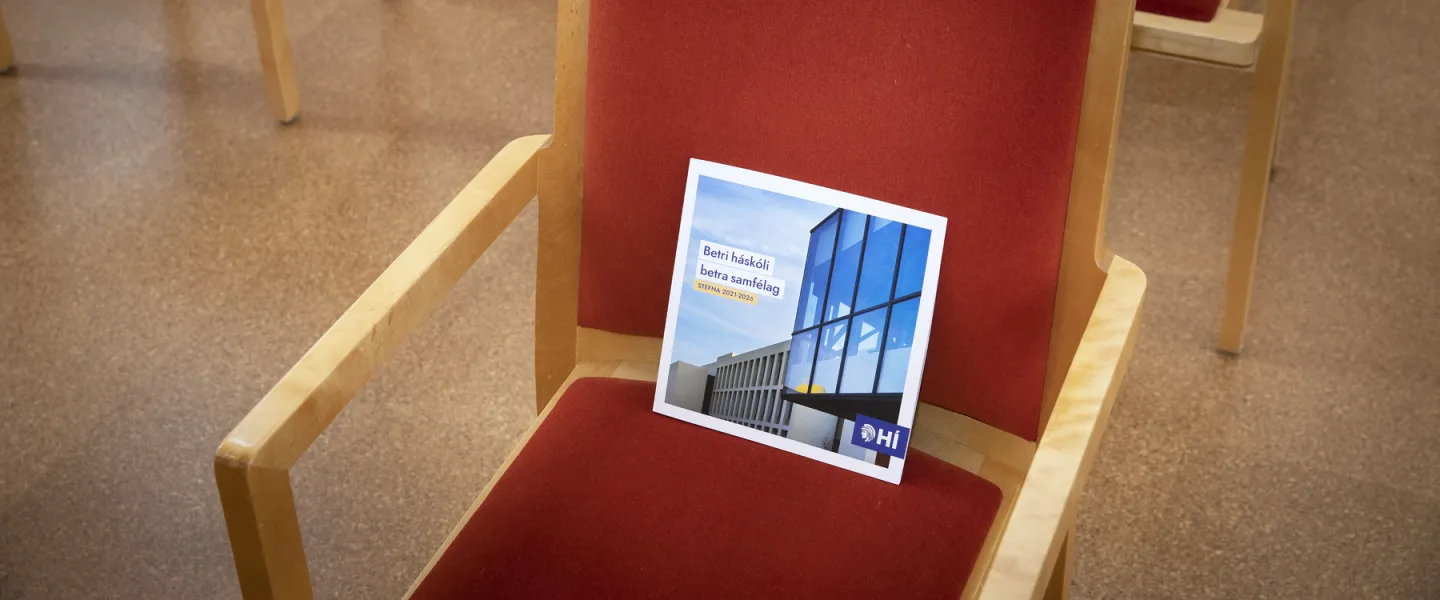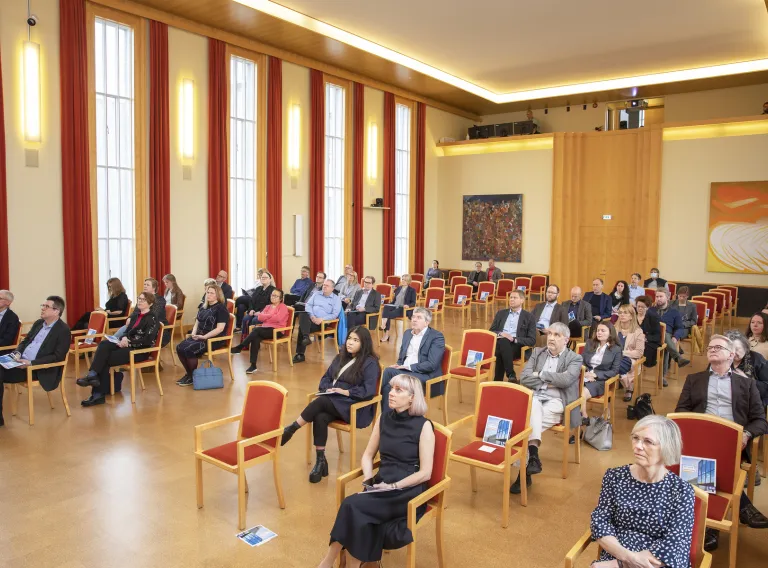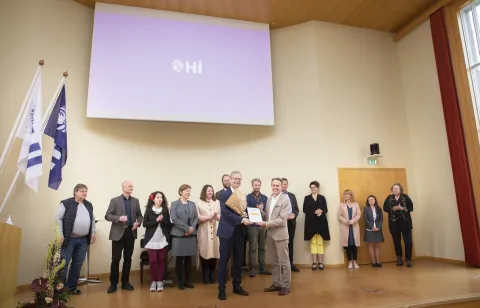
The new Strategy of the University of Iceland 2021-2026 is focused on increased international and interdisciplinary collaboration in research and teaching, as well as sustainability, diversity and innovation that benefits society, and creating a positive work and learning environment for students and staff. The strategy was presented at the UI annual forum this morning in the Aula of the Main Building. The forum also provided an opportunity to present the University's earth scientists with the annual award for enterprise and leadership.
The new Strategy of UI is entitled "Better University – Better Society", highlighting the vital role the University plays in driving social progress and global knowledge creation.
"Urgent challenges, both current and future, require solutions based on forward thinking, knowledge and interdisciplinary approaches and collaboration. The evolution of higher education over the next few years will make an enormous difference to our ability to tackle the complex issues facing us. It has never been more vital for universities to have a clear vision of their own futures. Universities are places for the free pursuit of knowledge, creative thinking, innovation and the education of new generations. They must blaze the trail with new knowledge and have the courage to adapt in the face of new challenges."
So said Jón Atli Benediktsson, rector of the University of Iceland, this morning as he introduced the new strategy, explaining the importance of higher education as we tackle the most pressing challenges of our time.
The rector also explained that the new strategy was based on extensive consultation, incorporating contributions from staff, students and partners over the past months and semesters.
A new strategy on the 110th anniversary of the University of IcelandThe University of Iceland celebrates its 110th anniversary on 17 June. Since it was founded, 55 thousand students have graduated from the University and made their mark on all areas of society and industry. The University has also worked systematically to earn a position of international trust and respect as a successful comprehensive research university. This is reflected in the fact that the University's student population of 16,000 includes people from almost a hundred different countries, with international staff numbers also increasing every year.

